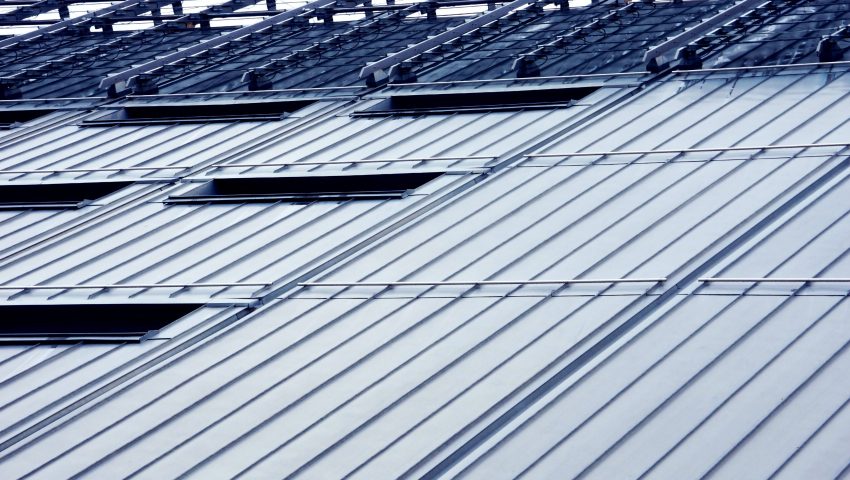Are you a current or prospective business owner in Denver, Colorado, who is considering roofing replacement to protect your commercial buildings? Or maybe you’re learning more about roofs so you can make sound real estate investments?
Understanding the distinctions between commercial and residential roofing could help ensure your commercial space gets the best protection possible. Let’s explore these two distinct styles of roofing and how they cater differently to our needs as homeowners and business owners in Denver, CO.
Commercial and Residential Roofs Overview
When it comes to roofing, commercial and residential roofs have their distinct differences. Understanding the differences between commercial and residential roofing can help you decide which option is right.
Commercial roof replacements require different materials and installation techniques than residential roofing, and commercial roof requirements typically vary by building code and liability requirements.
On the other hand, a residential roof can adapt to various urban architectural styles, from traditional timber-framed construction to clay tiles or metal roofs. Residential roofs may also require additional considerations, such as fireplace chimneys.
Whether selecting commercial or residential roofing, considering all options carefully can ensure that you make a smart investment for your home or business.
Roof Types Found on Most Commercial Buildings
Flat roofs are one of the most common types of roofs for commercial properties. Flat roofs involve a peel-and-stick or liquid coating material applied over a flat surface, providing protection from weather conditions like rain and snow. The same roofing materials are often used on low-slope roofs, which can be found on residential and commercial roofs.
Metal roofing is also becoming popular for residential and commercial roofs since metal panels are durable, long-lasting, and easily customized for various structures. They also provide superior water protection and energy efficiency compared to flat roof materials used in residential structures.
Unique Challenges to Commercial Roofing, such as Insurance Requirements and Building Code
Commercial roofs have unique challenges that residential buildings do not.
Insurance companies often have specific building codes for commercial roof projects that would not apply to a residential roof. Consequently, commercial roofs need higher quality roofing materials than residential roofs to meet these requirements.
Commercial roofing systems are also more complex than residential roofs because they often have specialized HVAC equipment, ventilation systems, and parapet walls that residential properties will not possess.
It can be a challenge for residential roofers to determine the best solutions for these special needs due to the complexity of their components, so it’s important to work with experienced commercial and residential roofers.
Benefits of Installing a Quality Commercial Roof
Installing a quality commercial roof is one of the smartest investments commercial building owners can make. Not only does it increase the value of their building, but commercial roofs are designed to last for decades.
Quality commercial roofs are made from durable and resilient materials, such as single ply, roofing membranes, metal, and asphalt shingles, which allow them to withstand weather damage and wear better than other commercial roofing materials.
Moreover, commercial roofs help protect buildings against moisture-related damages such as mold and rot, preventing the liability of accidentally giving employees or customers related illnesses.
Maintenance Tips for Protecting Your Commercial Roof Investment
Maintaining your commercial roof is an investment that can save you money and headaches down the road. Whether your roofing system is built up with asphalt shingles, is covered in solar panels, or is made of classic wood shakes, all roofing materials require upkeep to protect the important things inside.
Regular maintenance, such as keeping gutters unclogged and ensuring proper attic ventilation, are necessary steps to extend the life of your roof. Additionally, it’s essential to check for any signs of damage, such as loose membranes, after heavy wind or rainstorms to help ensure that minor issues do not become significant problems. Taking these preventive measures will ensure your commercial roof lasts for many years!
What to Look for in Professional Commercial Roofers
When looking for commercial roofers, it is essential to make sure they have experience specifically in commercial roofing. While many roofers claim to do residential and commercial roofing, a commercial roof requires specialized knowledge and techniques that are not always necessary for residential projects.
Certain commercial roofing systems may require specific industry certifications or accreditations, so make sure you know what those are and that your commercial roofer has them to ensure your building’s structure will be secure and up-to-code.
Finally, double-check the reviews – a commercial roofer with a good track record and years of satisfied clients is a safe bet when choosing a contractor.
Call the Team That Your Commercial Roofs Require
In commercial roofing, the stakes are higher than for a typical residential roof. But with the proper installation of the right roofing materials, you can expect durability, efficiency, and peace of mind.
Our team at Peak to Peak Roofing and Exteriors specializes has spent over 20 years in the roofing industry, so every roofing material we offer is tried and true to ensure your roof investment is tailored to your building’s needs. Call us today for a free roof inspection!

